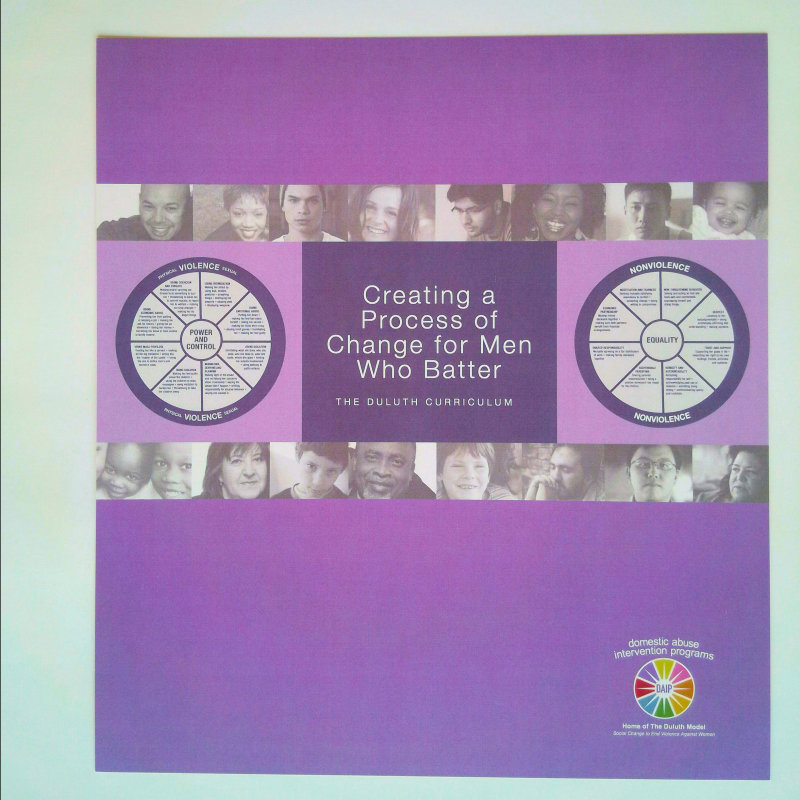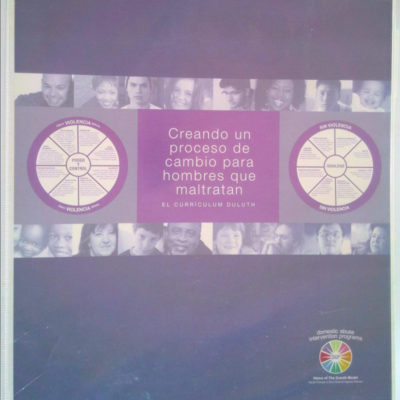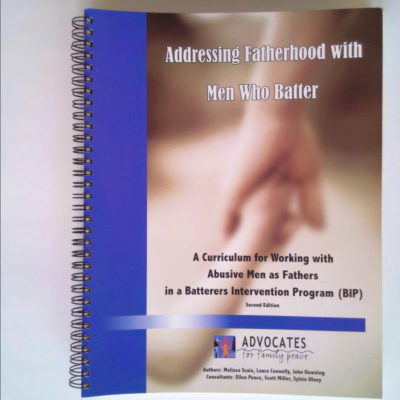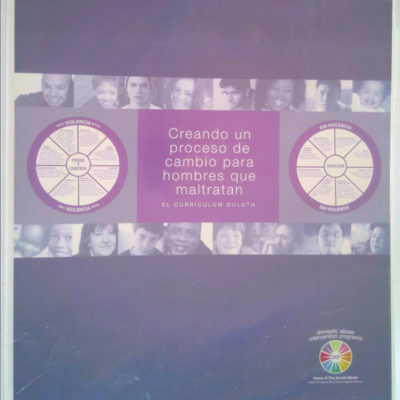Description
The most-widely used curriculum for working with men who batter.
THE CURRICULUM
- Facilitator’s Manual
- The 324-page manual provides a theoretical framework for understanding battering, illustrates how to create and facilitate a Duluth Model men’s nonviolence program, describes how a Duluth Model men’s program relates to the justice system and to programs for women who have been battered, and includes lesson plans and exercise for up to 30 weeks of classes.
- Power and Control: Tactics of Men Who Batter DVD
- A collection of twenty-four video vignettes that depict power-and-control tactics used by men who batter. Each vignette corresponds with a curriculum theme.
- Power and Control: A Woman’s Perspective DVD
- Features women who have been battered describing how men used tactics on the Power and Control Wheel against them, and men who have battered discussing how they used the tactics. Gives facilitators context for understanding impacts of battering, and helps men in groups see how violence affects victims.
- Facilitating a Men’s Nonviolence Class DVDs (Set of 4)
- Excerpts from a Duluth Model men’s group led by experienced facilitators, interspersed with the facilitators’ reflections about the group process. Gives examples of how to start a class, use the Control Log and Equality Log, and lead role-plays.
- Power and Control and Equality Wheel Posters
- 22″ x 20″ posters that illustrate power and control tactics and aspects of relationships defined by equality.
2011 EDITION CHANGES:
- Eight new vignettes
- New women’s experience video
- Group facilitation videos
- Reorganized manual and themes
- Dialogue starters for facilitators
- A new tool: The Equality Log
- More flexibility for facilitators in leading themes
- Advice for facilitators taking active CCR roles
- More details about changes in the 2011 curriculum.
“We have been using the Duluth manuals for 20 years and this one has the most significant changes to date–it is easy to use and understand.”
–Comments from a reviewer of the 2011 Edition
TRAINING
Because our experience tells us training is valuable and necessary for understanding this curriculum and using it as effectively as possible, we ask those who are interested in buying and using it to complete one of our training programs designed especially for it.
DAIP curricula are grounded in the Duluth Model, a constantly evolving philosophy based in DAIP’s work to end men’s violence against women through coordinated community response. The philosophy and concepts that guide the material can be challenging for both new and experienced facilitators.
Training provides important opportunities for participants to understand the curriculum and the process of facilitation, to examine their motivation for doing batterer-intervention work, and to examine their beliefs about men who batter and women who are battered. It is perfect for anyone who is starting a batterer intervention program, who is new to men’s non-violence group facilitation, who has been facilitating for a while and would like to refresh their insight and information.
DAIP strongly encourages anyone who is using early versions of the curriculum, or parts or adaptations of more-recent versions, to complete a training program. Learning about the curriculum in this context will productively challenge and change how facilitators perceive and practice their work.
The prerequisite to purchasing this curriculum is having completed the 2011 edition training for the curriculum or having been trained on the curriculum within the last 10 years (2006).
Training topics include:
- Understanding theories that guide or Creating a Process of Change for Men Who Batter or Creando un Proceso de Cambio para Hombres que Maltratan
- Facilitating structured, interactive classes
- Establishing and maintaining dialogue while avoiding collusion
- Using control logs, exercises (including role-plays), and video vignettes
- Helping men identify and change beliefs that support violence
- Learning how a Creando un Proceso de Cambio para Hombres que Maltratan or Creating a Process of Change for Men Who Batter program fits within a Duluth Model interagency coordinated community response




